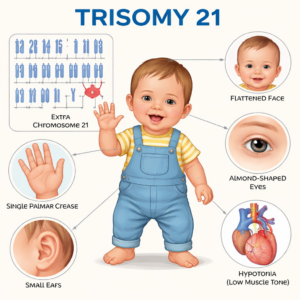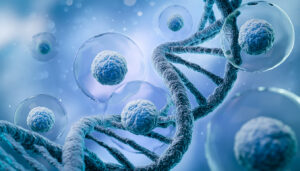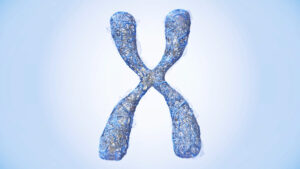Rare chromosome diseases
A fertilized egg is made up of 23 chromosomes from the mother and 23 from the father. This then means that there are 46 chromosomes, and 23 pairs of chromosomes altogether. These chromosomes include the chromosomes that determine the sex of an individual- XX for a female and XY for a male.
Chromosome diseases occur either when there are extra chromosomes in an egg (trisomies) or when segments of chromosomes are deleted or, in some cases, duplicated.
These cause two different kinds of chromosomal diseases. Trisomies are a group of chromosomal conditions caused by the presence of extra chromosomes.
When chromosomal material is deleted or duplicated, this often causes birth defects in affected individuals and another group of related syndromes.
What are the main chromosome diseases?
Trisomy diseases:
- Trisomy 21, Down syndrome: perhaps the most well-known and the most common of the chromosome diseases, currently occurring in 1 in every 700 babies born in the US. This disease is caused by the presence of an extra chromosome 21. Down syndrome is also linked to older maternal age. The symptoms of this syndrome include intellectual and developmental delay unique facial features, and heart conditions. Testing for Down syndrome is now a routine part of prenatal testing in many countries.
- Trisomy 18, Edwards syndrome: just 50% of babies born with this chromosome disease survive the first two weeks of life. The syndrome is characterized by very severe developmental delay and health issues that affect multiple parts and systems of the body.
- Trisomy 13, Patau syndrome: just 20% of babies born with this rare disease survive the first year of life. Brain anomalies are common with the syndrome, and many babies are born with extra fingers and toes.

Trisomy diseases- affecting the sex chromosomes:
- Klinefelter syndrome: This condition is caused by the presence of one, or sometimes two, extra sex chromosomes. The syndrome presents in boys, and symptoms generally do not become clear until the onset of puberty.
- Turner syndrome: this rare disease occurs only in girls and results from a missing X chromosome. The condition includes skeletal deformities and infertility.
- Others (chromosome diseases with birth defects caused by a deletion or duplication of parts of a chromosome)
- Cri-du-Chat syndrome: caused by a missing piece of chromosome 5, the first identifying symptom of this condition is a high-pitched cat-like cry at birth.
- Angelman syndrome: this chromosomal disease is characterized by severe developmental delay, limited to zero speech development, and sleep disturbances.
Diagnosis
The diagnosis of chromosome diseases, as with other genetic syndromes and rare diseases, is a process. It is a process that will involve genetic analysis, genetic counseling, and genetic testing.
Every part of the diagnostic journey may involve delays and possible misdiagnosis, especially in the case of rare diseases. However, the more we understand about chromosomal diseases, including their causes and symptoms, the faster and more accurately we can diagnose patients and ensure they get the support they need to manage their diagnosis.



